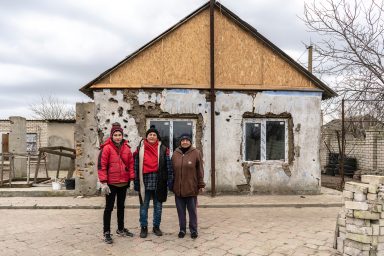New Jersey’s Motor Vehicle Commission responded to undocumented immigrants and their advocates by removing a controversial regulation it created to implement a landmark driver’s license law, but its decisions came two weeks after the law took effect.
After months of delays without explanation, the New Jersey Motor Vehicle Commission (MVC) is proposing changes that will allow undocumented immigrants to apply for driver’s licenses without first sharing personal information with the Social Security Administration. But it will still be many months before they can actually obtain a license under a law that was signed by Gov. Phil Murphy (D) more than a year ago.
The Motor Vehicle Commission had sparked an outcry last July when it said it would require undocumented immigrants who do not have a taxpayer identification number to get a letter from the Social Security Administration verifying they were ineligible for a Social Security number. Advocates feared that risked exposing over 300,000 undocumented immigrants to deportation.
Earlier this month, the commission issued an amendment to its regulations after consulting with other states that permit undocumented residents to obtain driver’s licenses. If approved, they will now be able to self-certify their undocumented status with an affidavit, as is done in states like New York. The amendment will be released to the public for a 60-day comment period before the commission can vote to approve it.
In an interview with WhoWhatWhy, MVC Chief Administrator Sue Fulton said the commission had not intended to create obstacles for undocumented New Jersey residents.
“There was very strong input from the community that this requirement left out a very large number of people,” she said. “Our main concern was how to implement this law with just the affidavit and maintain security. The last thing we want is for people to take advantage of this situation and steal the identities of undocumented people — or citizens — using falsified IDs,” she said.
MVC Delays Rule-Making Even as NJ License Law Takes Effect in Two Weeks
Fulton declined to comment on why the MVC had abruptly canceled a meeting to finalize rules in November.
At a public meeting held on January 15 — two weeks after the law took effect —
Fulton alluded to the outcry over the rules, saying there had been a misunderstanding.
At the same time, the MVC announced it would delay beginning to process applications until May 1 because of the pandemic. However, it may be well beyond May before applicants can actually obtain a license.
In early January, prompted by questions from WhoWhatWhy, New Jersey state Sen. Teresa Ruiz (D), a cosponsor of the law, sent the MVC a formal request for a timeline for implementing the law and asked for the rules to be more inclusive.
Fulton said there were many requests, both from the bill’s sponsors and also from the governor’s office, to make the rules safer for undocumented immigrants, but the impetus to implement affidavits came from conversations with motor vehicle agencies in other states.
“I think the last round of conversations we had, when we got into more security detail, and were able to go off the record with some of the states to find out about their security procedures, that was what turned the key for us that helped us understand how to implement this within the NJ system,” she said.
Advocates who work to inform the undocumented about their rights applauded the MVC for changing the rules but have urged the MVC to be transparent and timely in meeting the May 1 deadline.
https://whowhatwhy.sitetherapy.co/2020/11/16/undocumented-new-jersey-residents-who-seek-drivers-licenses-at-risk-under-new-proposed-rules/
“The original January date having come and gone, without implementing and barring further clarification, have left an information vacuum that organizations like ours simply do not have the capacity to fill at this time,” said Kevin Escobar, from Wind of the Spirit, an advocacy group.
Escobar lost his grandmother to COVID-19, and his undocumented father, who has lived in New Jersey for more than 30 years, was unable to prepare for her passing while she was in the ICU or easily attend her wake because he did not have a license. “For those like my family, who are dealing with serious hardship, an established timetable with a strong public education campaign will be helpful to pull through so much hardship that we have experienced,” he said.
Fulton would not commit to any specific services that will be available on May 1. She said her goal is for the MVC to offer appointments for undocumented applicants on that date. But how many of its offices will be able to process their applications depends on how far the MVC gets in training workers to correctly verify documents while maintaining COVID-19 safety protocols.
“We will move as fast as we can without sacrificing the safety of our employees,” said Fulton. Visa-restricted people, or those with expired visas, should be able to get regular licenses quickly because their documents are accepted under the existing system. But any implementation that involves new documents, like birth certificates from other countries, will be difficult to implement immediately, she said.
MVC spokesman William Connolly said that it would provide more information in coming weeks on a dedicated webpage at NJMVC.gov offering guidance, videos, and resources. The agency will also provide an updated list of required documents prior to May 1.
Though undocumented immigrants are the largest group to benefit from the law, it also benefits former prisoners, survivors of domestic violence, and homeless persons. The law offers a standard driver’s license but not a commercial license.
Related front page panorama photo credit: Adapted by WhoWhatWhy from Vilseskogen / Flickr (CC BY-NC-SA 2.0).



